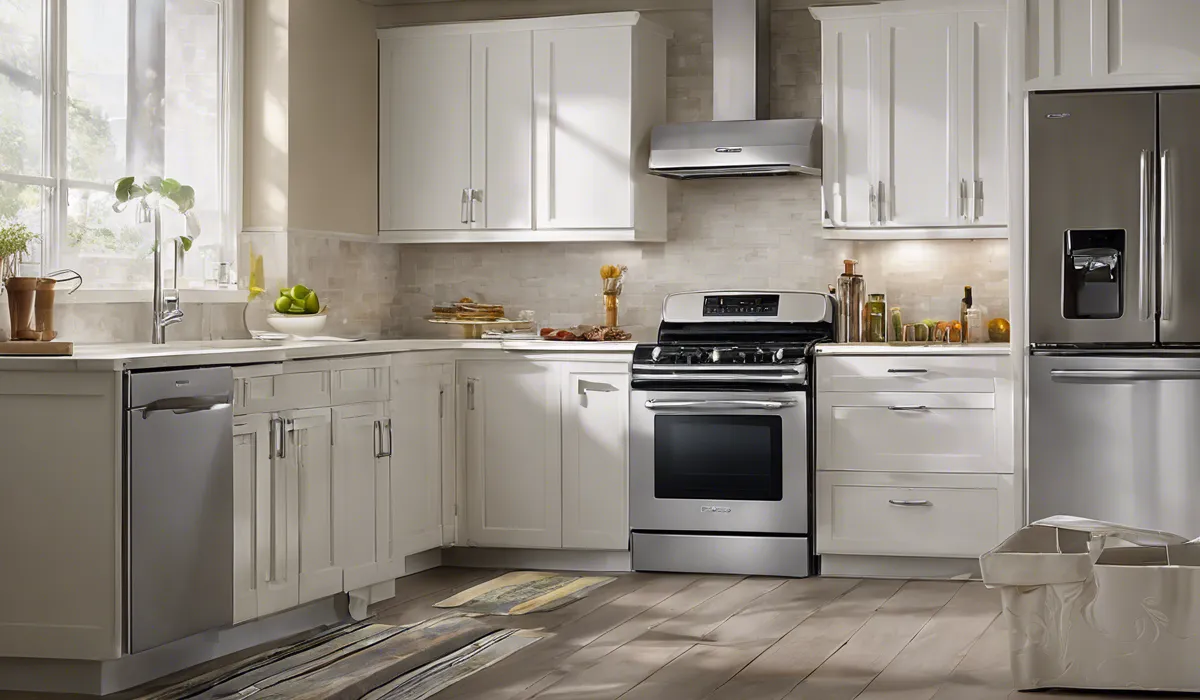Can a Dishwasher Be Plugged Into a Normal Outlet? Find Out!
Yes, a dishwasher can be plugged into a normal outlet, typically a 120V residential outlet with a dedicated 15-20 amp circuit. It should not share a circuit with other heavy appliances to prevent overloading.
Understanding Dishwasher Electrical Requirements

Standard Voltage and Amperage for Dishwashers
Dishwashers are designed to operate on standard household electrical systems. Typically, a dishwasher requires a 120-volt outlet, which is the standard voltage in most homes.
Regarding amperage, dishwashers commonly need a 15 to 20 amp circuit. This ensures that the appliance has enough power to run efficiently without causing any electrical issues.
It’s essential to know these requirements because they dictate the type of outlet you can use for your dishwasher.
Comparison with Regular Household Outlets
Most household outlets provide 120 volts of electricity, which is compatible with dishwasher specifications.
However, the key difference lies in the amperage. While light fixtures and small appliances may work well on a 15 amp circuit, a dishwasher’s power consumption means it will often require a circuit towards the higher end of the range.
Importance of Following Manufacturer’s Specifications
Adhering to the manufacturer’s specifications is crucial for the safe and efficient operation of your dishwasher.
These specifications are designed to ensure the longevity of the appliance and to prevent electrical mishaps that could occur from improper use.
Ignoring these specifications can lead to power overloads, decreased appliance efficiency, and potential warranty voidance.
Installation Considerations for Dishwashers

The Role of Dedicated Circuits in Appliance Installation
Dedicated circuits are essential for appliances like dishwashers that have significant power demands. A dedicated circuit serves a single appliance, which means that no other appliances or devices are sharing the power from that circuit. This is important to prevent circuit overloads, especially when the dishwasher is in use during its high-power cycles, such as heating water.
Ground Fault Circuit Interrupter (GFCI) Outlets and Their Relevance to Dishwashers
GFCI outlets are designed to protect against electrical shock by monitoring the flow of electricity in a circuit.
They are particularly important in areas where water and electricity could potentially come into contact, making them a safety requirement for dishwasher installations.
GFCIs can detect imbalances in the electrical current and shut off power to prevent harm.
Potential Risks of Using Extension Cords or Adapters
Using extension cords or adapters with a dishwasher is not recommended. These can lead to numerous risks, including fire hazards, electrical shocks, and damage to the appliance.
Extension cords may not be able to handle the current required by the dishwasher, leading to overheating and potential accidents. Always opt for a direct connection to an appropriate outlet.
Best Practices for Dishwasher Outlet Use

Consulting a Professional Electrician for Proper Installation
When it comes to installing a dishwasher, consulting a professional electrician is the best way to ensure that the electrical requirements are met safely.
An electrician can assess your home’s electrical system and make sure that the dishwasher is connected to an appropriate circuit that meets the necessary voltage and amperage requirements.
Adhering to Local Building Codes and Regulations
Local building codes and regulations are in place to ensure the safety of electrical installations.
These regulations cover everything from the type of wiring that should be used to where outlets should be placed. By adhering to these codes, you can avoid potential legal issues and ensure your dishwasher is installed safely and correctly.
Tips for Safe Operation and Maintenance to Avoid Electrical Hazards
To keep your dishwasher running safely, it is important to perform regular maintenance and follow safe operation practices.
This includes checking the plug and outlet for signs of wear or damage, ensuring that the appliance is properly grounded, and avoiding overloading the circuit by running multiple high-power appliances simultaneously.
Proper maintenance can help prevent electrical hazards and extend the life of your dishwasher.
FAQs About Plugging a Dishwasher into a Normal Outlet
Can I plug my dishwasher into a regular 120V outlet?
Yes, a dishwasher can typically be plugged into a regular 120V residential outlet.
Does a dishwasher require a dedicated electrical circuit?
Yes, a dishwasher usually requires a dedicated 15-20 amp circuit to operate safely and prevent overloading.
Can a dishwasher share a circuit with other appliances?
No, it is not recommended for a dishwasher to share a circuit with other heavy appliances to avoid circuit overloads.
What type of outlet is needed for a dishwasher?
A dishwasher typically requires a three-prong grounding-type outlet that matches the dishwasher’s plug.
Is it safe to use an extension cord with a dishwasher?
Using an extension cord with a dishwasher is generally not recommended due to potential safety hazards and the risk of inadequate power supply.
Final Thoughts
A dishwasher can indeed be connected to a standard 120V residential outlet, provided it is on a 15-20 amp dedicated circuit.
This ensures the dishwasher operates safely without competing for power with other high-demand appliances, thereby avoiding circuit overloads and potential electrical issues.





